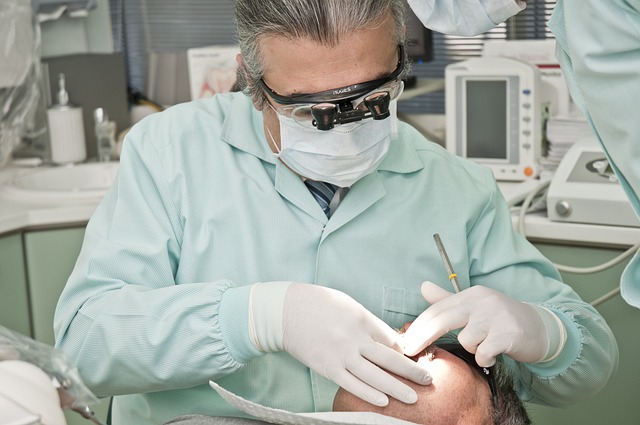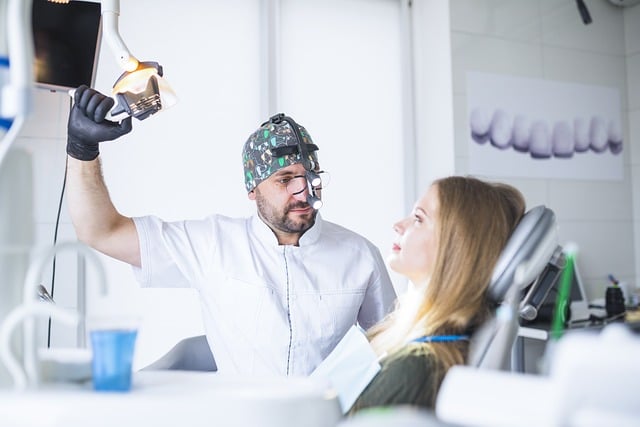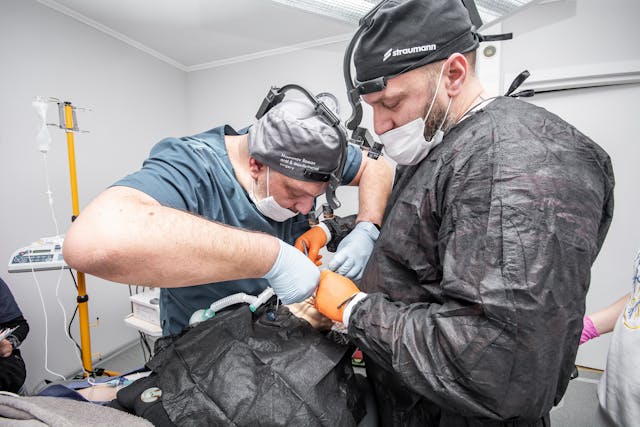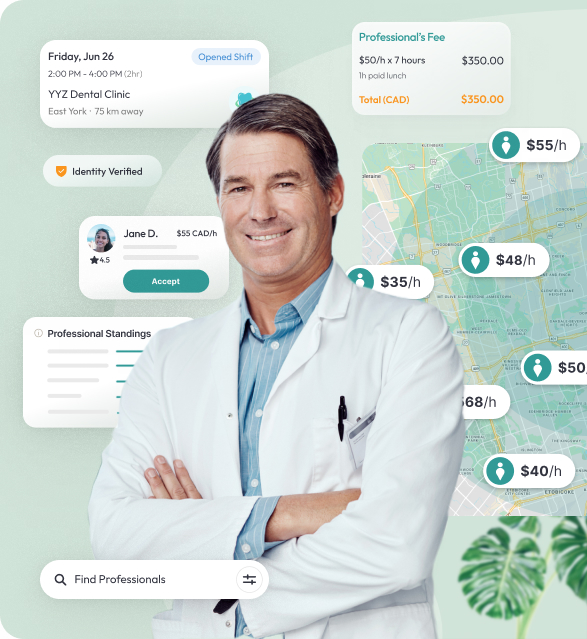Dentist Burnout: Prevention and Coping Strategies
Dentistry is considered a stressful profession. Treating oral and dental health conditions can cause emotional exhaustion and depersonalization in dentists, affecting their self-esteem. A survey found that 28% of oral healthcare experts admitted to having undergone emotional exhaustion at some point in their careers due to the working environment, long working hours, and staying in close contact with patients.
The interesting thing is that many practitioners deny or trivialize suggestions that they suffer from dental burnout. There could be two reasons for not acknowledging they have dentist burnout. They could be doing that to hide their weakness or to reinforce the concept that they have complete control of their prescribed treatment regimen when they aren’t. There have been cases where dentists showed signs of mental health issues. Nevertheless, oral health experts are prone to physical and mental ill health. Several researches have shown that anxiety and depression are inherent in dental practices, with healthcare experts reacting to and managing stress in dentistry.
This article shares practical insights into burnout prevention techniques.

How Dentist Burnout Impacts Medical Practices
The occupation of dentistry has many merits, but oral healthcare professionals are vulnerable to dentist burnout, which is the reason for many physical and mental issues. We are living in an age where depression and anxiety are being taken very seriously, so turning a deaf ear to these problems will have a negative influence on the quality of care being provided to the patient.
Professional burnout is psychological. In this state, the individual gets emotional exhaustion, isolates themselves, and forms a negative perception about themselves and those around them. This frame of mind would be detrimental to any career, especially the medical field, because healthcare professionals are expected to keep their emotions in check when treating patients, as depression and anxiety can cause them to misdiagnose and provide the wrong treatment plan.
Misdiagnosing a patient may result in them losing their medical license and facing lawsuits, which can result in paying millions of dollars to the patients as compensation. This has serious consequences in their personal and professional lives.

Signs and Symptoms of Dentist Burnout
- Tiredness that doesn’t improve with rest
- Negative outlook towards life and work
- Disappointed with colleagues colleagues
- Difficulty concentrating on work along
- Lack of creativity and decreased productivity
- Frequent headaches and increased susceptibility to illnesses
- Anxiety, irritability, and persistent sadness or sense of hopelessness
If you are an oral health expert and experiencing any of these signs of dentist burnout, it’s important to discuss the problems with a psychologist or a close one. The psychologist possesses the mental health resources for dentists to create a healthy work environment, and effective practice management requires dental professional well-being.
Contributors To Dentist Burnout
Numerous factors lead to dentist burnout, with high workloads and tedious administrative tasks causing issues in work-life balance for dentists. A 2023 study showed that nearly 50% of healthcare professionals in Canada worked beyond their desired capacity, with those overworked experiencing burnout at rates four times higher than their peers.

High Workload and Time Constraints
The high workload and time pressures can take a toll on the dentists’ physical and emotional health, causing them to burnout. They have to treat multiple patients turning up at the clinic with different symptoms. They have to perform complex procedures and handle administrative tasks. Working for extended hours without a break, they can easily get tired and find it hard to spend quality time for themselves. This causes oral health experts to get emotionally exhausted and not show interest in fulfilling professional responsibilities.
Emotional Strain From Patient Care
The emotional strain from patient care is also a key factor in dentist burnout. The doctors are held responsible and bear the responsibility of ensuring successful treatment outcomes while managing patients’ anxieties and expectations. If something goes wrong, they are held responsible for improper care. This can be emotionally exhausting, especially when it comes to difficult cases or distressed patients. The pressure of providing high-quality care at all times increases stress levels, creating feelings of detachment and cynicism towards their work, which leads to them getting burnt out.
Strategies To Avoid Dentist Burnout
It’s important for dentists to avoid burnout because they must stay productive and keep their emotions in check to treat their patients successfully. These tips help create a balanced lifestyle that reduces the risk of burnout and enhances overall productivity.
Creating Boundaries and Managing Work Hours
They have to set clear boundaries between work and personal life to stay positive when it comes to work. They can do so by giving full dedication and leaving professional duties aside when being at home so they can have personal time at home unless it’s an emergency case. These time management strategies are sure to help you balance your personal and professional life. You can communicate this to your colleagues to reduce workplace stress in the dentistry field.

Self-Care and Wellness Practices
They can also avoid getting stressed by incorporating self-care routines into their daily life. Engage in activities that nourish your mind and body, like exercise, meditation, or engaging in activities they love hobbies. In case the workload becomes overwhelming, a temporary staff can be hired to handle the tasks at hand. This can alleviate pressure and give you the space needed to focus on self-care.
Coping Mechanisms for Dentist Burnout
These coping mechanisms for dental professionals help you avoid dentist burnout and stay on top of your game.
Building/Joining a Support Network
A good support system in dental practices helps dentists to avoid getting stressed out due to work. The interactions and honest discussions with colleagues and mentors can help you deal with different situations, especially when emotions are running high. Opening up about the struggles you are going through with peers makes you feel accepted. Fellow dentists may provide advice or words of encouragement that are helpful in your personal and professional lives.
Mindfulness and Stress-Relief Techniques
They prevent the symptoms of burnout via mindfulness and stress-relieving activities into the daily routine. A report showed that 45.2% percent of healthcare experts take up sports to relieve stress. Apart from stress, meditation, along with breathing and physical exercises, calms the mind. Hospitals and medical centers can reach out to a dental placement agency to hire temporary staff during the peak season to lessen the workload or have the full-time staff rejuvenate.
Implementing Changes in Practice
Dental experts and medical centers can implement the following policies to bring a meaningful change in the field.
Streamlining Office Operations
Smooth operations are important for efficient and productive medical practices. This is where practice management software comes into play. They automate everything there’s to do with administrative tasks. From scheduling to billing and even data analysis, they provide accuracy while reducing administrative burdens. Research has shown that Key Performance Indicator-driven practices boost their operational efficiency, whereas the pre-appointment rates make up 25-30% of the productivity. Monitoring these indicators, such as the revenue generated per clinical hours, highlights that that needs improvement.
Encouraging a Positive Work Environment
It’s essential to have a positive work environment because it increases staff morale and adds to patient satisfaction. A supportive work professional environment leads to higher staff productivity and lower turnover rates. Statistics show that inclusive practices can increase productivity by up to 21%. Therefore, it’s essential to encourage teamwork and provide a platform for open communication because a simple opinion could change patient care quality to drive better outcomes for both staff and patients.
Conclusion: Embracing a Sustainable Career in Dentistry
Dentist burnout is real, and proactive steps must be taken to reduce workplace stress in dentistry. It can be addressed by streamlining the office and work environment and spending quality time with your loved one. Dental professionals can cope with these issues with open lines, while self-care practices and joining support networks can help them be resilient. This supportive culture is helpful in improving the physical and emotional well-being of oral health experts. It paves the way for a sustainable, thriving medical career.




